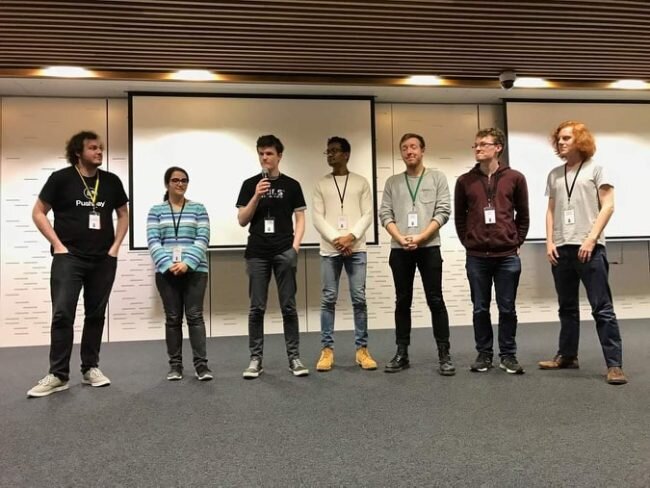Pushpay Presents: Alumni Chat & Developing for past, present and future
Written by Yekti Crow
 Pushpay is our long time friend and this year's sponsor. We have the pleasure to collaborate with them on the 2 insightful videos, "Alumni Chat with Oliver" and "Developing for Past, Present and Future" online bootcamp with Brent. They talk tech internships, Pushpay's culture and what 'clean coding' means.
Pushpay is our long time friend and this year's sponsor. We have the pleasure to collaborate with them on the 2 insightful videos, "Alumni Chat with Oliver" and "Developing for Past, Present and Future" online bootcamp with Brent. They talk tech internships, Pushpay's culture and what 'clean coding' means.
Alumni Chat with Oliver Jacks
Oliver, is a QA (Quality Assistance) Engineer at Pushpay. He first joined the company in 2018 as a QA Engineering Intern through Summer of Tech. After completing his summer internship, Pushpay offered him a permanent role and the rest is history.
Oliver shared with our students on how he first came across software testing as he was not familiar with it before. He attended our Unit Testing bootcamp and became really interested in this particular field of tech. At Pushpay, instead of being solely responsible for testing, the QA team is more of an advocate for policies. They also collaborate with other teams to ensure that the product can meet customers' needs.
He advised students to always be interested and be curious to learn new things by attending SoT bootcamps. It is also a great way to meet the employers that you might end up working with.
"Developing for Past, Present and Future" online bootcamp by Brent Whiteley
 This online bootcamp focused on the importance of clean coding for all our developer students. It emphasised that whether you are working in a large multinational corporation, or a small start-up, there is more to consider as a programmer than just "does my code work". This is an important thing to consider across all tech internships.In his presentation, Brent mentioned that with each line of code you are writing history, building on top of what has come before, and providing a foundation for what will come in the future. He shared some advice and tips on how to become a good and effective coder. Clean coding is important because the tech stack, language and standards can change and having a good knowledge on core programming practices can translate across multiple languages.
This online bootcamp focused on the importance of clean coding for all our developer students. It emphasised that whether you are working in a large multinational corporation, or a small start-up, there is more to consider as a programmer than just "does my code work". This is an important thing to consider across all tech internships.In his presentation, Brent mentioned that with each line of code you are writing history, building on top of what has come before, and providing a foundation for what will come in the future. He shared some advice and tips on how to become a good and effective coder. Clean coding is important because the tech stack, language and standards can change and having a good knowledge on core programming practices can translate across multiple languages. We had a very lively Q&A session on Slack, lots of students were asking Brent for some advice on whether it is better to have shorter code or longer code with more information in it (length vs readability), tips on collaborating with other programmers, and how to transition from uni to work with your current coding skills.
